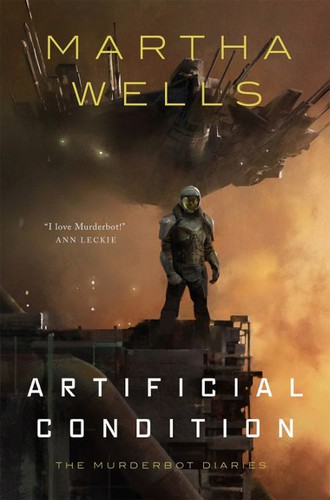oats reviewed Artificial condition by Martha Wells (The Murderbot Diaries, #2)
back to murderbot
4 stars
about a year since I read the first book, and a TV show in between it was time to pick up murderbot again. took me a bit of time to get into it, but once I was the book was finished in the day. enjoyed being back in murderbots head, the interactions with ART are great. just wished the climax would have been drawn out a little longer!
about a year since I read the first book, and a TV show in between it was time to pick up murderbot again. took me a bit of time to get into it, but once I was the book was finished in the day. enjoyed being back in murderbots head, the interactions with ART are great. just wished the climax would have been drawn out a little longer!







